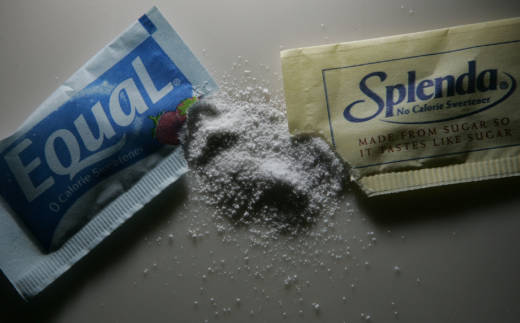"This is further evidence that consumption of artificial sweeteners adversely affects gut microbial activity which can cause a wide range of health issues," co-author Ariel Kushmaro, a professor of biotechnology engineering at Ben-Gurion, said in a statement.
Disturbances in the gut ecosystem can seriously harm human health with previous studies showing that pathogenic bacteria can cause many chronic diseases, including inflammatory bowel disease, obesity, diabetes, and cancer.
The presence of these chemicals is not always obvious, with many popular foods, such as microwave popcorn and fruit juice, labeling the ingredient as a "natural sweetener." That's because the Food and Drug Administration has yet to define the term “natural” for use in food labeling.
Along with possible adverse health effects, the study warns that artificial sweeteners have become so ubiquitous that they're increasingly turning up in drinking water and groundwater basins.
"They are resistant to wastewater treatment processes, therefore they are continuously introduced into the water environments," write the authors. "Such concentrations [of artificial sweeteners] are among the highest known for anthropogenic trace pollutants."
Calorie Control Council, the trade group for the artificial sweetener industry, criticized the study for relying solely on E. coli bacterium, which they argue is not directly comparable to the human microbiome.
"More specifically, it is unknown whether the changes to the bacterium noted in the study, or any changes in microbiome bacteria, are indicative of negative health outcomes in humans," the group said in a statement emailed to KQED.
Moreover, the group says that all the sweeteners included in the study have been approved for use by several scientific and regulatory authorities, including the FDA.
To determine toxicity, researchers modified different types of E.coli bacteria to emit light when experiencing distress. Researchers then could see what type of damage occurred, depending on which type of modified E. coli glowed. Researchers found that each sweetener produced a specific fingerprint using three stripes of bacteria, with each stripe representing a different type of damage. From Live Science, quoting senior author Evgeni Eltzov:
The pattern of colors was unique for each sweetener; one might've caused more DNA damage than protein damage, for example. However, all sweeteners damaged the bacteria in some way, Eltzov said. But Eltzov noted that these findings don't mean the chemicals are "toxic" to humans. More research is needed to make that determination.
One cited shortcoming of the study is that the concentrations of artificial sweetener used were higher than what's typically consumed in a can of diet soda. The findings do not "tell us what happens in real life. It tells us what happens in a test tube," Dr. Kristina Rother, a senior research physician at the National Institutes of Health, told Live Science.
"Real life is just more complicated," Rother, who was not involved in the study, told Live Science.
Still, she recommends avoiding artificial sweeteners.
"I haven't seen a study that says any of these six FDA-approved sweeteners make the gut microbiome better,” she says. "So, my recommendation is very simple and very difficult to achieve: Live a healthy life, eat little processed food.”
